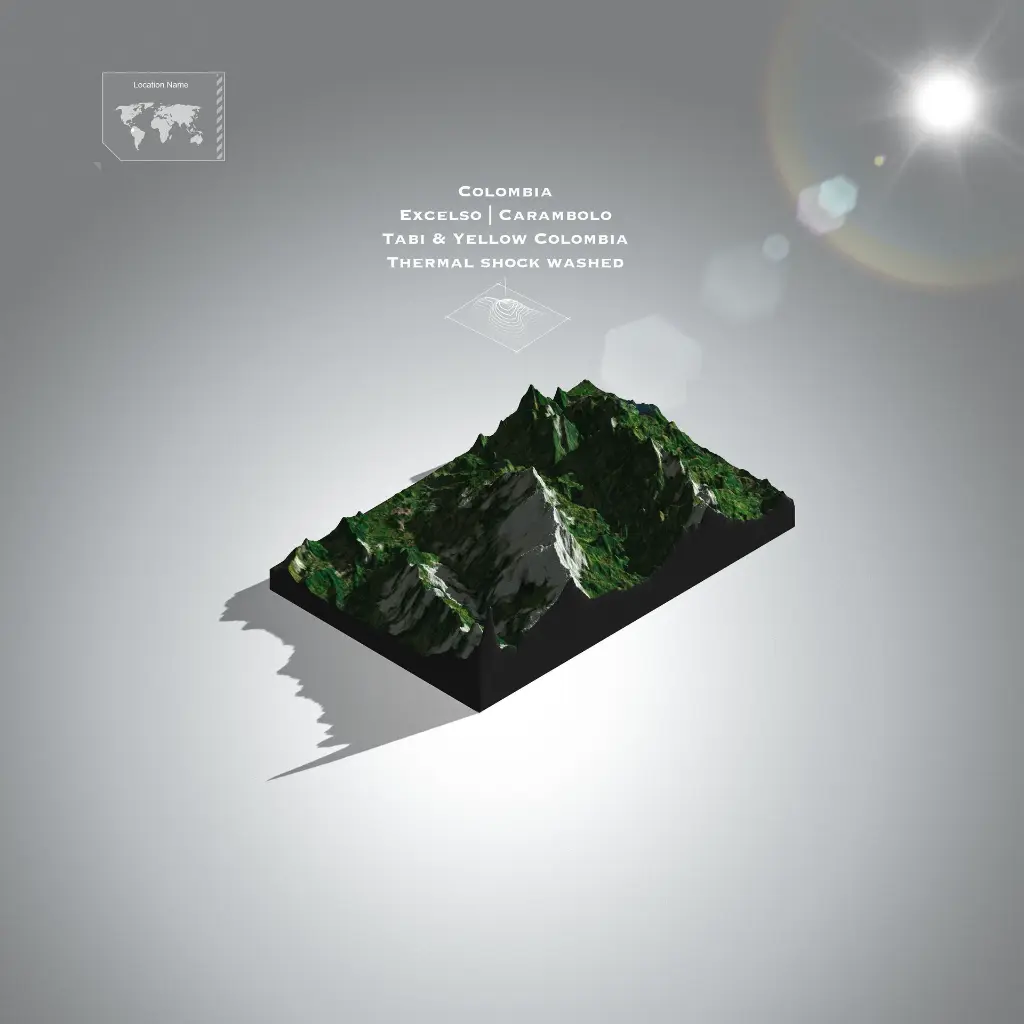Colombia Excelso Carambolo | Thermal shock washed (Single Origin Filter)
About This Single Origin
Colombia Excelso Carambolo | Pitalito Huila
ROAST: Filter Roast
PROCESS: Thermal shock Washed
REGION: Pitalito Huila
ELEVATION: 1780 – 1900
VARIETAL:Tabi & Yellow Colombia
CUP: Raspberry, Lime, Coconut water
Introducing Colombia Excelso Carambolo!
According to Lohas Beans, an exotic Colombian coffee supplier that has been rapidly climbing the ranks to become recognised as one of the premier microlot coffee suppliers worldwide, this coffee has undergone a dual fermentation process. Lohas Beans administers this process to many of their High Cup Score (HCS) series beans. First, the coffee is received at the mill and disinfected of impurities that may be present from the farm. Secondly, the coffee is left to rest and oxidise for 24 hours, before it is depulped. It then undergoes a brief anaerobic fermentation before being administered a hot and cold wash (thermal shock). Finally, the coffee is mechanically dried and rested for at least 1 week.
This all seems rather straight forward, but taste this coffee and tell us that it isn’t vibrant and complex! This coffee is a blend of two varietals, Tabi and Yellow Colombia. Interestingly, this coffee is called Carambolo, which is Spanish for ‘star fruit’.
‘Carambola’ is one category of Lohas Beans’ HCS offering, the others of which are called ‘El Oso’ (Bear), ‘Bombona’ (Candy), Las Moras (Blackberries) and ‘Laureles’ (Laurels). At any rate, we are delighted by the vibrant flavours and have been finding raspberry, lime and coconut water—just to name a few. The coffee is coating and buttery yet juicy and clean. This coffee strikes a neat balance, appealing to both natural coffee fans and purely washed coffee drinkers.
Location
Northern Sumatra
This coffee comes from the renown Aceh region in northern Sumatra, where the average farm size is just a single hectare and 80% of producers are women.
95% of producers are small holders. The region is a powerhouse. The geography here is rich in nutrients with most coffee growing on volcanic soils amongst the rainforest. This is a combined blend of small producers from the Pantan Masara villages who have delivered cherries to the Asman Gayo mill. This means that the lot is not varietal specific, however, it is inevitably comprised of the most common varieties of Sumatra which include Ateng, Bor bor, Catimor and Timor hybrids.


A greener lifestyle
Sumatran coffee
When we think of Sumatran coffee our mind tends to pivot to coffees that have undergone the wet-hulled coffee process. In Sumatra this typically involves the farmer herself partially removing the mucilage of the coffee by hand and then selling it at 30-50% moisture content. The cherry buyer will then hull the coffee, which is to remove the parchment, whilst the coffee still contains this higher moisture content (wet) and then dry the coffee to 11-13% moisture content. In contrast, the coffee we bring you is a natural processed coffee that has been constantly monitored and dried on raised beds and patios for 30-40 days. Such a long drying period is an extraordinary effort! Wet hulling is so popular because the ambient temperature and humidity of Sumatra is high, with heavy rainfall and cloud cover as commonplace for most of the year. This makes drying coffee labour intensive and high risk as the coffee can easily spoil. Sumatran wet-hulled coffee, however, often comes with a signature flavour; earthy and herbaceous, that some cherish whilst others try to avoid. The raw coffee appears a unique, greenish-blue colour.
We enjoy that classic Sumatran wet-hulled coffee flavour but also cherish this rare and painstakingly processed lot. We thank the extraordinary team at Cafe Imports for bringing this coffee across the water and look forward to more of the Sumatran lots they have to offer. In the cup we have been finding notes of dark chocolate, raisins and rockmelon.
%20(200g)?unique=9d7f9c2)

%20%20MantaRayCoff.webp?unique=203f8e3)

%20(200g)?unique=9d7f9c2)

%20%20MantaRayCoff.webp?unique=203f8e3)
